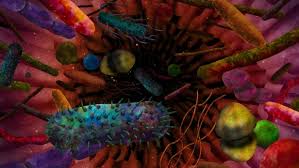
Breaking News
DRINK 1 CUP Before Bed for a Smaller Waist
 Nano-magnets may defeat bone cancer and help you heal
Nano-magnets may defeat bone cancer and help you heal
 Dan Bongino Officially Leaves FBI After One-Year Tenure, Says Time at the Bureau Was...
Dan Bongino Officially Leaves FBI After One-Year Tenure, Says Time at the Bureau Was...
 WATCH: Maduro Speaks as He's Perp Walked Through DEA Headquarters in New York
WATCH: Maduro Speaks as He's Perp Walked Through DEA Headquarters in New York
Top Tech News
 Laser weapons go mobile on US Army small vehicles
Laser weapons go mobile on US Army small vehicles
 EngineAI T800: Born to Disrupt! #EngineAI #robotics #newtechnology #newproduct
EngineAI T800: Born to Disrupt! #EngineAI #robotics #newtechnology #newproduct
 This Silicon Anode Breakthrough Could Mark A Turning Point For EV Batteries [Update]
This Silicon Anode Breakthrough Could Mark A Turning Point For EV Batteries [Update]
 Travel gadget promises to dry and iron your clothes – totally hands-free
Travel gadget promises to dry and iron your clothes – totally hands-free
 Perfect Aircrete, Kitchen Ingredients.
Perfect Aircrete, Kitchen Ingredients.
 Futuristic pixel-raising display lets you feel what's onscreen
Futuristic pixel-raising display lets you feel what's onscreen
 Cutting-Edge Facility Generates Pure Water and Hydrogen Fuel from Seawater for Mere Pennies
Cutting-Edge Facility Generates Pure Water and Hydrogen Fuel from Seawater for Mere Pennies
 This tiny dev board is packed with features for ambitious makers
This tiny dev board is packed with features for ambitious makers
 Scientists Discover Gel to Regrow Tooth Enamel
Scientists Discover Gel to Regrow Tooth Enamel
 Vitamin C and Dandelion Root Killing Cancer Cells -- as Former CDC Director Calls for COVID-19...
Vitamin C and Dandelion Root Killing Cancer Cells -- as Former CDC Director Calls for COVID-19...
Two new studies strengthen the gut-brain connection in autism

The new research reveals how gastrointestinal problems can be triggered by the same gene mutations associated with autism, and a striking mouse study has demonstrated how a fecal transplant from humans with autism can promote autism-like behaviors in the animals.
One of the more intriguing areas of microbiome research is the growing connection between gut bacteria and autism. Several recent, albeit small, studies have revealed behavioral and psychological symptoms of autism in children can be improved using fecal transplants from healthy subjects. Exactly how the microbiome could be influencing autism symptoms is still unclear but one new study, led by researchers from Caltech, has strengthened this intriguing gut-brain hypothesis.
The research began by taking microbiome samples from human subjects, both with and without autism, which were then transplanted into germ-free mice. The results were striking, with the animals receiving gut bacteria from human subjects with autism displaying hallmark autistic behaviors such as decreased social interactions and increased repetitive behaviors. The mice administered with gut bacteria from non-autistic human donors did not display these behavioral symptoms.



